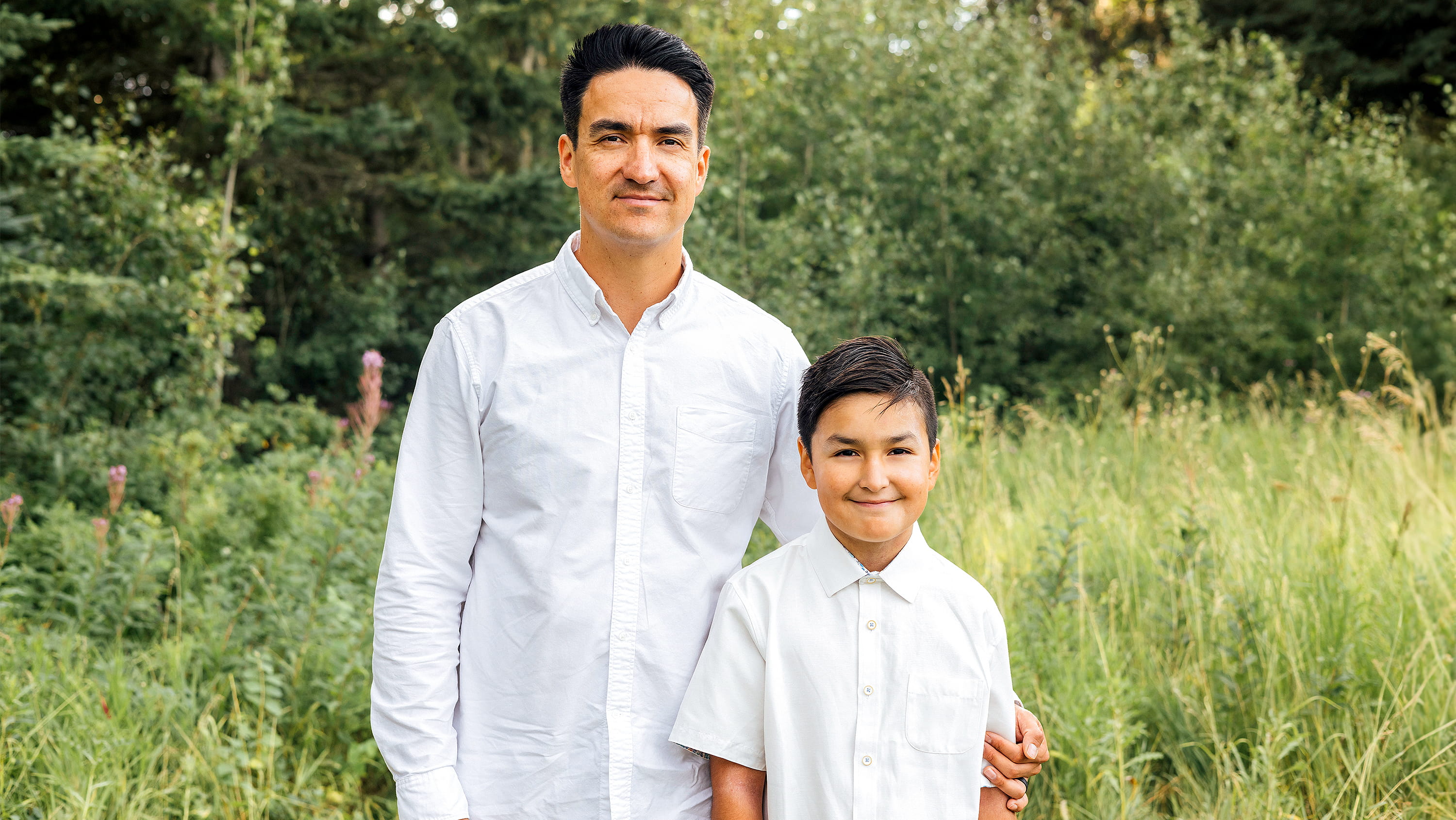Indigenous people face unique challenges in the health-care system, especially when it comes to services for those with autism. First Nations people who live on federally established reserves have limited access to caregiver support and resources that others can easily use and may even take for granted. This is mainly because on-reserve health care is the responsibility of the federal government, but most autism services are delivered by provincial and territorial health authorities.
Another issue is there has been very little research done on the prevalence of autism in Indigenous populations. The most recent data on autism prevalence in Canada specifically excluded individuals living on First Nations reserves.
Research is the first step in planning health-care support, yet it is almost nonexistent for Indigenous people living with a disability and for their caregivers.
Grant Bruno, assistant professor in the Department of Pediatrics and a registered member of Nipisihkopahk (Samson Cree Nation), is working to change that. Bruno is receiving funding from the Canadian Centre for Caregiving Excellence — powered by The Azrieli Foundation — to support the Indigenous Caregiving Collective.
“Building capacity within Indigenous communities can be transformative in the lives of families who will benefit from culturally safe care,” says Liv Mendelsohn, executive director of the Canadian Centre for Caregiving Excellence. “We are thrilled to be supporting the Indigenous Caregiving Collective, which will have a tremendous positive impact on the future of health-care delivery from coast to coast to coast.”
The Indigenous Caregiving Collective is a grassroots project that aims to address the unique needs and challenges faced by Indigenous caregivers and their communities. The goal is to build an Indigenous network of researchers and supports for Indigenous caregivers and a national network of Indigenous elders, organizations, health practitioners and researchers to share knowledge, scale practices, identify research priorities and advocate for better caregiving policy.
It’s a community-driven initiative that will start within the four nations of Maskwacîs, Alberta, working closely with Maskwacîs Parents Place and the Nipisihkopahk Pediatric Clinic. The plan is to ultimately establish similar caregiver support networks in Indigenous communities across Canada.
“It’s the first project of its kind in Canada — maybe even the world,” Bruno says.
“Caregiving can be a very isolating journey. The ICC will establish a caregiving community where Indigenous caregivers can support each other, learn from each other and work with community leaders to identify potential community-led research projects. This presents an exciting opportunity for Maskwacîs to become a leader in Indigenous caregiving and research. Caregiving is very much a strength in the community.”
As the father of two boys with autism, Bruno has first-hand experience with the challenges Indigenous caregivers face.
“In Cree culture, caregiving is a sacred responsibility,” he says. “Early on, when my sons were first diagnosed, I felt like my entire world was shifted in a negative way. I felt alone. I ultimately realized that my children are here to teach me and I am here to support them and help them fulfil their purpose.”
The collective builds on Bruno’s doctoral work on autism in Indigenous communities, funded in part by the Stollery Children’s Hospital Foundation through the Women and Children’s Health Research Institute (WCHRI). Bruno is the academic lead of Indigenous children’s health research at WCHRI and also started the Ispimihk Awâsisak Program, an initiative dedicated to enhancing the health and well-being of Indigenous children, youth and their families at the community level within Treaty 6 territory. The two programs will work together to improve the lives of Indigenous people living with a disability and their caregivers.
“I gained a lot of insights into the experiences of caregivers in First Nations communities from the other studies, and that really laid the groundwork for this work to be done,” explains Bruno.
“I’m now taking those teachings and I’m going to be applying them to this new initiative so that I can start to learn from and support caregivers in First Nations communities across Canada.”
